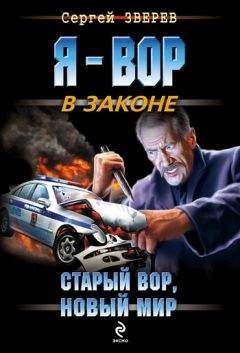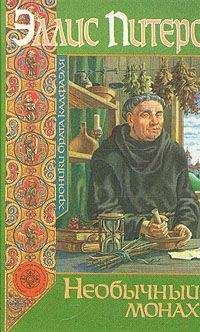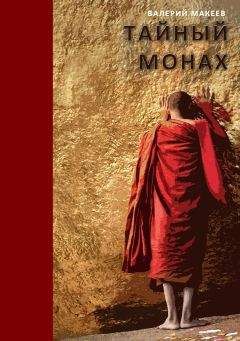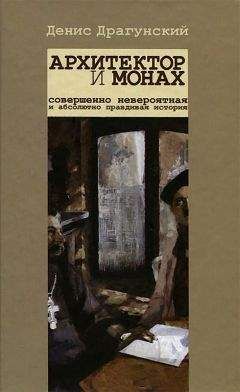Энтони Хоуп - Английский язык с Энтони Хоупом. Узник Зенды / Anthony Hope. The Prisoner Of Zenda
“These gentlemen,” said Michael, with a stately courtesy which, to do him justice, he could assume with perfect grace and ease, “are the loyalest and most devoted of your Majesty’s servants, and are my very faithful and attached friends.”
“On the last ground as much as the first,” said I, “I am very pleased to see them.”
They came one by one and kissed my hand – De Gautet, a tall lean fellow, with hair standing straight up and waxed moustache; Bersonin, the Belgian, a portly man of middle height with a bald head (though he was not far past thirty); and last, the Englishman, Detchard, a narrow-faced fellow, with close-cut fair hair and a bronzed complexion. He was a finely made man, broad in the shoulder and slender in the hips. A good fighter, but a crooked customer, I put him down for. I spoke to him in English, with a slight foreign accent, and I swear the fellow smiled, though he hid the smile in an instant.
“So Mr. Detchard is in the secret,” thought I (выходит, мистер Дэтчард в курсе дела, – подумал я; to be in the secret – быть посвященным в тайну).
Having got rid of my dear brother and his friends (избавившись от своего дорогого братца и его друзей; to get rid of – избавиться, отделаться от /кого-л., чего-л./), I returned to make my adieu to my cousin (я вернулся пожелать кузине всего хорошего; to make one’s adieu – прощаться). She was standing at the door (она стояла у дверей). I bade her farewell, taking her hand in mine (я прощался с ней, взяв ее руку в свою; to bid farewell – прощаться; to bid – предлагать цену; объявлять, заявлять; farewell – прощание).
“Rudolf,” she said, very low, “be careful, won’t you (Рудольф, – сказала она очень тихо, – береги себя, хорошо)?”
“Of what (от чего)?”
“You know – I can’t say (ты же знаешь, я не могу сказать). But think what your life is to (но помни, что значит твоя жизнь для) – ”
“Well to (ну, для) —?”
“To Ruritania (для Руритании).”
Was I right to play the part, or wrong to play the part (я был прав или неправ, играя свою роль)? I know not: evil lay both ways, and I dared not tell her the truth (я не знаю, зло имело место в обоих случаях, и я не осмелился сказать ей правду; to lie – лежать; находиться, заключаться).
“So Mr. Detchard is in the secret,” thought I.
Having got rid of my dear brother and his friends, I returned to make my adieu to my cousin. She was standing at the door. I bade her farewell, taking her hand in mine.
“Rudolf,” she said, very low, “be careful, won’t you?”
“Of what?”
“You know – I can’t say. But think what your life is to – ”
“Well to —?”
“To Ruritania.”
Was I right to play the part, or wrong to play the part? I know not: evil lay both ways, and I dared not tell her the truth.
“Only to Ruritania?” I asked softly (только для Руритании? – спросил я мягко).
A sudden flush spread over her incomparable face (неожиданно краска залила ее бесподобное = прекрасное лицо).
“To your friends, too (для ваших друзей тоже),” she said.
“Friends (друзей)?”
“And to your cousin,” she whispered, “and loving servant (и для вашей кузины, – прошептала она, – и преданной слуги; loving – любящий, нежный; верный, преданный).”
I could not speak (я не мог говорить). I kissed her hand, and went out cursing myself (я поцеловал ей руку и вышел, проклиная себя).
Outside I found Master Fritz, quite reckless of the footmen (снаружи я застал мастера Фрица, /который/ совершенно не обращая внимания на лакеев; reckless – безрассудный; пренебрегающий /чем-л./), playing at cat’s-cradle with the Countess Helga (играл в веревочку с графиней Хельгой; cat’s cradle – «кошкина люлька» /игра с веревочкой, надетой на пальцы/).
“Hang it!” said he, “we can’t always be plotting (к черту! – сказал он, – мы не можем вечно плести интриги; to plot – составлять план; интриговать). Love claims his share (любовь требует свое: «свою долю»).”
“I’m inclined to think he does,” said I (я склонен думать, что так, – сказал я); and Fritz, who had been by my side, dropped respectfully behind (и Фриц, который шел рядом, уважительно отступил назад; to drop behind – отставать; отступать назад).
“Only to Ruritania?” I asked softly.
A sudden flush spread over her incomparable face.
“To your friends, too,” she said.
“Friends?”
“And to your cousin,” she whispered, “and loving servant.”
I could not speak. I kissed her hand, and went out cursing myself.
Outside I found Master Fritz, quite reckless of the footmen, playing at cat’s-cradle with the Countess Helga.
“Hang it!” said he, “we can’t always be plotting. Love claims his share.”
“I’m inclined to think he does,” said I; and Fritz, who had been by my side, dropped respectfully behind.
Chapter 9
A New Use for a Tea-table
(Новое применение для чайного столика)
If I were to detail the ordinary events of my daily life at this time (ели бы мне пришлось в подробностях описывать заурядные события своей повседневной жизни; to detail – подробно излагать), they might prove instructive to people (они могли бы оказаться поучительными для людей; to prove – доказывать; оказываться) who are not familiar with the inside of palaces (которые не знакомы с дворцовыми порядками; inside – внутренняя сторона, изнанка); if I revealed some of the secrets I learnt (если бы я раскрыл несколько тайн, которые узнал), they might prove of interest to the statesmen of Europe (они могли бы оказаться интересными для государственных деятелей Европы). I intend to do neither of these things (я не собираюсь делать ни того, ни другого: «ни одного из этих поступков»; thing – вещь, предмет; действие, поступок). I should be between the Scylla of dullness and the Charybdis of indiscretion (я оказался бы между Сциллой тупости и Харибдой неосторожности), and I feel that I had far better confine myself strictly to the underground drama (и я полагаю, что мне намного лучше ограничиться только той тайной драмой; to feel – ощупывать; чувствовать; полагать, считать; strictly – строго, точно; underground – подземный; подпольный, тайный) which was being played beneath the surface of Ruritanian politics (которая разыгрывалась под поверхностью = в недрах руританской политики). I need only say that the secret of my imposture defied detection (нужно только сказать, что тайна моего перевоплощения не была раскрыта: «не поддалась раскрытию»; imposture – обман, подлог; to defy – оказывать открытое неповиновение; не поддаваться). I made mistakes (я делал ошибки). I had bad minutes: it needed all the tact and graciousness (у меня были и неприятные моменты, требовались вся тактичность и обходительность; minute – минута; мгновение, момент) whereof I was master to smooth over some apparent lapses of memory (которыми я обладал, чтобы сглаживать некоторые явные провалы в памяти; to be master of smth. – владеть, обладать чем-л.; to smooth over – приглаживать; сглаживать, устранять; smooth – гладкий, ровный; lapse – упущение, оплошность) and unmindfulness of old acquaintances of which I was guilty (и невнимательность к своим старым знакомым, чем я /иногда/ страдал: «в которой я был повинен»; unmindful – невнимательный, забывчивый). But I escaped, and I attribute my escape, as I have said before (но мне /удалось/ выкрутиться, и я объясняю свой успех: «свое спасение», как я уже сказал ранее; to escape – совершать побег; избежать /опасности и т. п./, спастись; to attribute – приписывать /чему-л./; объяснять /чем-л./), most of all, to the very audacity of the enterprise (прежде всего, именно дерзостью /самого/ предприятия). It is my belief that, given the necessary physical likeness (по моему убеждению, обладая нужным физическим сходством; belief – вера, доверие; мнение, убеждение), it was far easier to pretend to be King of Ruritania (было намного легче прикинуться королем Руритании; to pretend – притворяться, делать вид; прикидываться, разыгрывать из себя) than it would have been to personate my next-door neighbour (чем выдать себя за своего ближайшего соседа).
If I were to detail the ordinary events of my daily life at this time, they might prove instructive to people who are not familiar with the inside of palaces; if I revealed some of the secrets I learnt, they might prove of interest to the statesmen of Europe. I intend to do neither of these things. I should be between the Scylla of dullness and the Charybdis of indiscretion, and I feel that I had far better confine myself strictly to the underground drama which was being played beneath the surface of Ruritanian politics. I need only say that the secret of my imposture defied detection. I made mistakes. I had bad minutes: it needed all the tact and graciousness whereof I was master to smooth over some apparent lapses of memory and unmindfulness of old acquaintances of which I was guilty. But I escaped, and I attribute my escape, as I have said before, most of all, to the very audacity of the enterprise. It is my belief that, given the necessary physical likeness, it was far easier to pretend to be King of Ruritania than it would have been to personate my next-door neighbour.
One day Sapt came into my room (однажды Сэпт вошел ко мне в комнату). He threw me a letter, saying (он швырнул мне письмо, сказав):
“That’s for you – a woman’s hand, I think (это вам – женский почерк, я полагаю; hand – рука; почерк). But I’ve some news for you first (но сначала у меня для вас новости).”
“What’s that (что такое)?”
“The King’s at the Castle of Zenda (король в замке Зенды),” said he.
“How do you know (откуда вы знаете)?”
“Because the other half of Michael’s Six are there (потому что там другая половина Шестерых Михаэля). I had enquiries made, and they’re all there – Lauengram, Krafstein, and young Rupert Hentzau (я навел справки, все они там – Лауэнграм, Крафштайн и юный Руперт Хенцо): three rogues, too, on my honour, as fine as live in Ruritania (тоже три негодяя, клянусь честью, самые отпетые в Руритании; fine – прекрасный, превосходный /часто ирон./; большой, крайний /эмоц. – усил./).”
“Well (ну и)?”
“Well, Fritz wants you to march to the Castle with horse, foot, and artillery (ну и Фриц хочет, чтобы вы двинулись туда с кавалерией, пехотой и артиллерией; horse – лошадь, конь; кавалерия, конница /собир./; foot – ступня, нога; пехота).”
“And drag the moat?” I asked (и обшарили дно рва? – спросил я; to drag – тащить, волочить; искать на дне /с помощью трала, багра и т. п./).
“That would be about it,” grinned Sapt (что-то вроде этого, – осклабился Сэпт), “and we shouldn’t find the King’s body then (и нам не следует находить = и лучше бы нам не находить /там/ тело короля тогда).”
“You think it’s certain he’s there (вы думаете, он точно там)?”
“Very probable (очень возможно). Besides the fact of those three being there, the drawbridge is kept up (не считая того факта, что эти трое находятся там, /еще и/ мост держат поднятым), and no one goes in without an order from young Hentzau or Black Michael himself (и никто не /может/ войти внутрь без приказа молодого Хенцо или самого Черного Михаэля). We must tie Fritz up (мы должны утихомирить Фрица; to tie up – привязать; ограничить свободу действий, препятствовать).”




